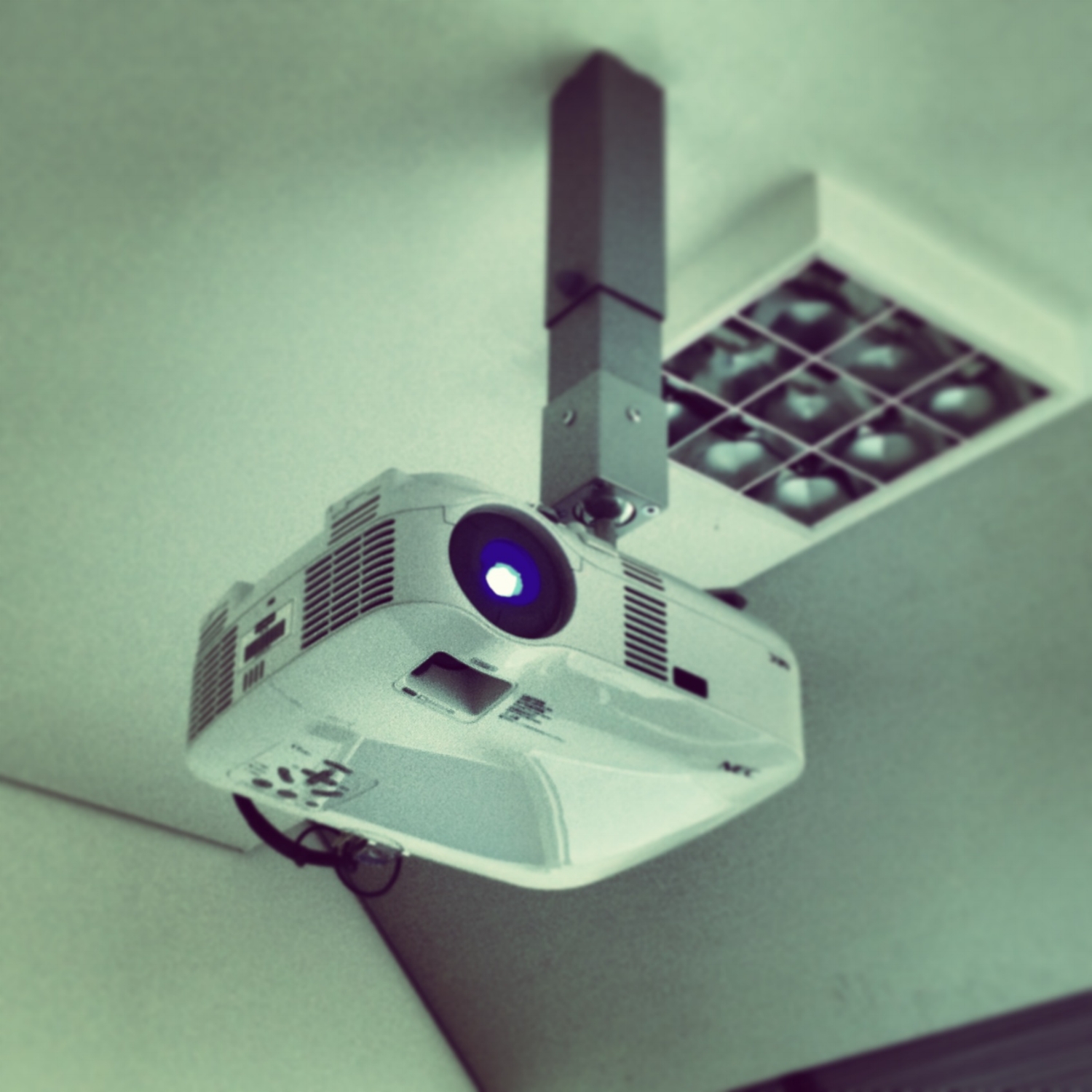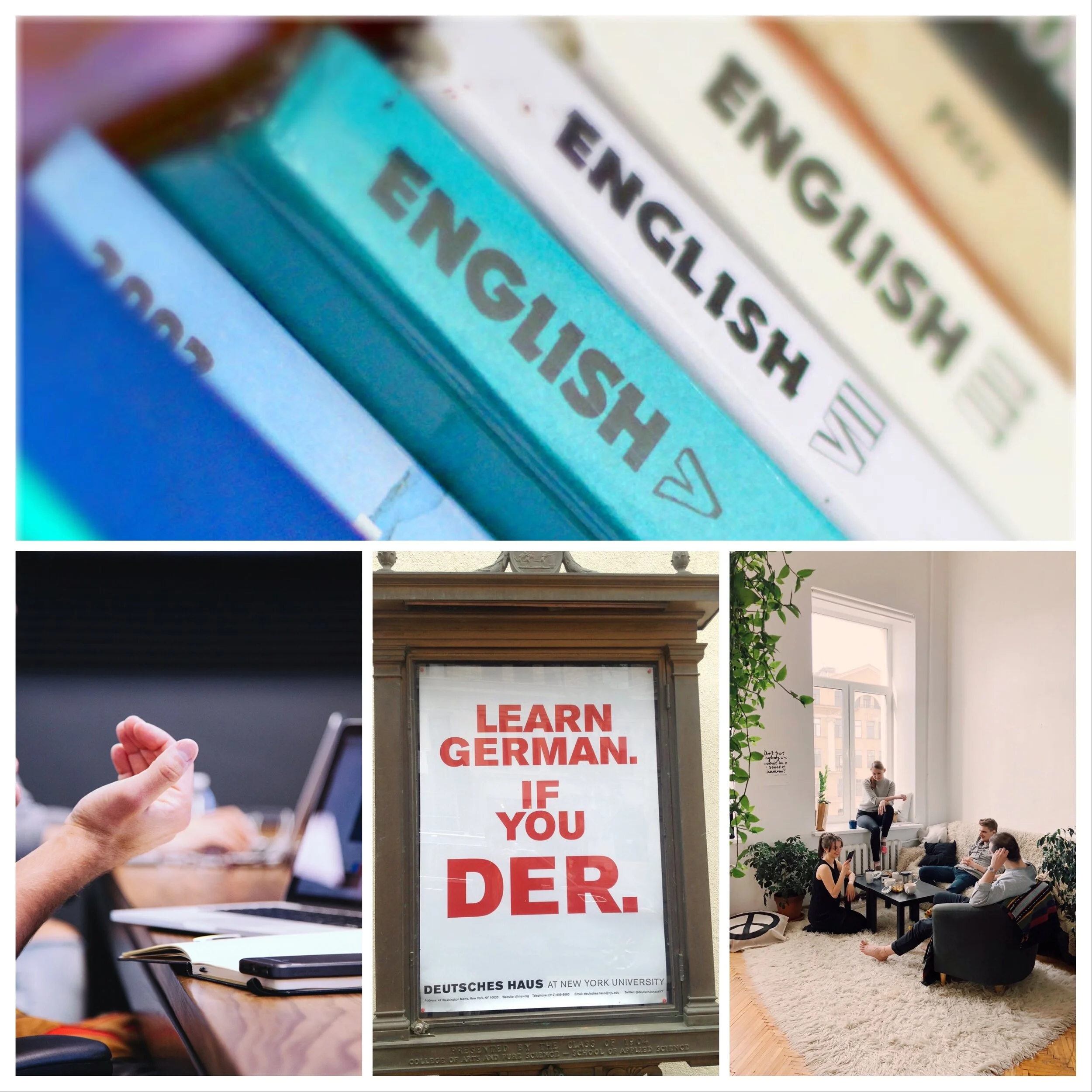Stop Stealing our Words!
Learning German can be a baffling and complex process, even when you're really trying. I personally have been trying to get to grips with it for the last five years. Even when I think I have it, I don't. One of the most important lessons I have learned is don't ever get cocky, that's when mistakes happen. For example, one time on a cold December day I strolled into the gym and, in passing, I told the woman behind the reception desk "Ich bin Kalt" or in English "I'm cold". She looked at me like I had defecated in her breakfast, but I put that down to my impeccable German being tinged with my English accent. On returning home, I proudly told my wife of my fine German interaction, only for her to inform me, through fits of laughter, that I had proudly declared to the nice receptionist that "I am frigid". Not my finest moment. Mistakes aside, Germans will often attempt to bridge the language divide by switching to English, which is sometimes helpful. It can also be a coded message, something along the lines of “please stop butchering my language, allow me to show you what multilingualism looks like”. Interestingly though there are other occasions in a German conversation where someone will drop in a distinctively English word. Anyone who spends any time in Germany will slowly begin to see that English is everywhere; in adverts, signs and on TV. The only problem is that Germans tend to take our words and use them in rather random ways, which is fine if a little confusing. For today's blog I'll introduce you to some of my favourites.
Handy
This is probably the most common English word heard in Germany. English speakers know this word to mean something useful, in Germany it simply means mobile phone. How this word managed to enter the German lexicon I will never know, especially when you can already say Mobiltelefon which I would have thought summed it up quite succinctly. I suppose, given the circumstances it might be better to say handy than to use the northern Germany word Ackerschnacker which doesn't quite roll off the tongue, unless you are from the north. In English, handy has a number of meanings. When a friend told me “I love a handy”, I broke out in unintentional laughter. I didn't have the heart to tell him what it meant.
Beamer
Working in an office can be a constant stream of drudgery and frustration. Despite what some might think, there is no child in the world that when asked what they would like to do when they are older replies “data entry”. In many cases, what gets you through the day are the little victories such getting the last snickers from the vending machine or insuring that Pat in accounting has an extra hard time reading that nonsensical PDF you sent in a fleeting moment of passive aggression. When I started working in an office in Germany, excitement was generally generated by finding some bizarre futuristic piece of office equipment, like the turbo powered pencil sharpener. Other times I was simply satisfied by opening a utility closet door to find some prehistoric industrial paper shredder that sounded like I was disposing of a terrified wookie. After a few months I was given the task of delivering a presentation, and was told by a colleague I would require the “Beamer”. “What the hell could that be?” I pondered to myself. Perhaps it's the next big thing in presentation tech that would allow me to directly interface with the Matrix and thus fulfil my destiny of destroying our robot overlords. Just as I was putting the finishing touches to an imaginary victory speech for the last remnants of humanity, my colleague returned. “Here's the beamer, have fun!” he said handing me what suspiciously looked like the projector Moses used to explain the ten commandments via biblical power point. I felt seriously betrayed by my own language.
Public viewing
After living in Germany for a certain amount of time, British people begin to accept some uncomfortable truths. Germans can be intentionally funny, beer is immeasurably better and if we invented anything, the Germans will have accepted it, perfected it and are now beating us at it. I can basically accept the Teutonic dominance in football, science, technology and waste management. However, what does tend to stick in my craw are the moments when they use the English language better than we do. Take the phrase 'public viewing', even before I explain what it is, most native English speakers know and are still a little confused. Public viewing is the phrase to describe any major sporting event being shown on a big screen, and possibly outside. What is confusing about the phrase is the exactness, it's too good. I want to watch a football match, weather permitting, outside in Britain. I explain this event by saying “They're showing the match on a big screen in town” or words to that effect. It's much more concise if I were to say “I'm going to the public viewing”. Much simpler, but I'll be damned if I use it. That would be admitting defeat!
Wellness
The common image of the serious and humourless German is one that has kept Brits comfortable and safe for many decades. We could assure ourselves that we were capable of laughing at ourselves and only being serious when the Queen was on telly or while we were taking any form of public transport. Sadly this myth has been thoroughly debunked, despite holdouts on both sides. The Germans can be serious about some things though, one of which happens to be stress prevention. If you happen to be working for a large German company, someone, at some time will have mentioned burn out and the need to visit a “wellness” area. German office workers are quite often concerned with theirs and their colleagues mental fatigue and as such going to a wellness area is seen as a great way of fending off nervous breakdown. Despite this enlightened view, our German cousins have kidnapped one of our words and are forcing it to things it was never designed for. Like a fat man riding a child’s bike, the word seems to be contorted into a stress position that may require some complicated corrective surgery. Wellness is simply Spa or Spa holiday/weekend.
Mobbing
Bullying can be a terrifying, no matter what age you might be. As a precocious fifteen year old, I had the displeasure of experiencing this first hand. Although no one deserves to be bullied, I didn't exactly help myself by being twenty stone, most of which was made up by my tremendous ginger afro. What I couldn't help was being English in Scotland at around the time the film Braveheart was released. Thankfully, most of the bullying consisted of being taunted by inaccurate historical references, which in turn would lead me to correct some bigger historical faults, which in turn led me to be beaten up. Seriously though, small Scottish towns are delightful. There is very little that makes bullying any scarier, except perhaps calling it mobbing as they do in Germany. Committing an act of mobbing, at least in my eyes, corresponds with visions of pitchfork wielding villagers chasing Frankenstein up a hill or worse, being overrun by a hoard of mindless zombies. Some might say those two examples give a deep insight into my psyche, others may recognize them from a review of caravan holidays in Inverness.










